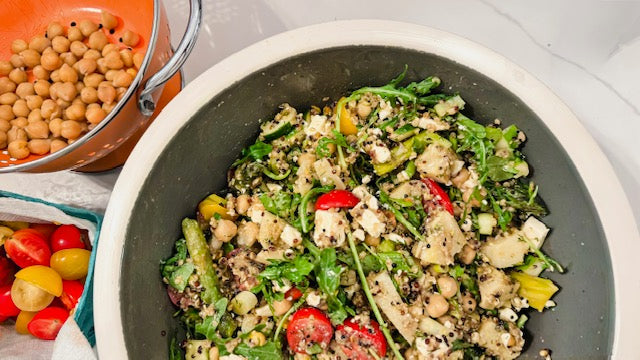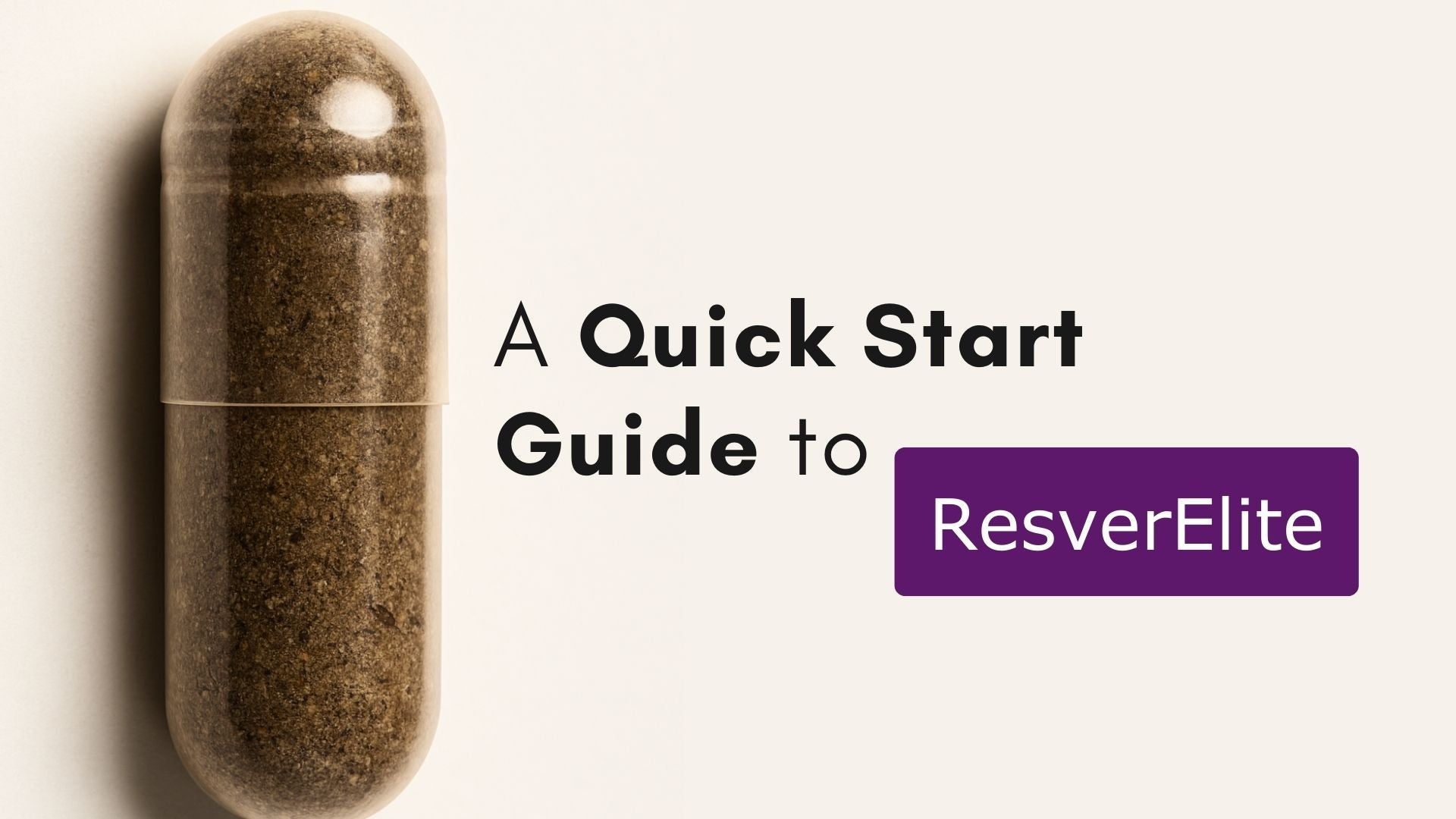Por Jes Williams
Manejo del Estrés
En el mundo acelerado del 2025, es fácil quedar atrapado en la rutina agitada y descuidar tu salud mental. Incorporar prácticas en tu rutina diaria o semanal (¡empezar con algo pequeño está bien!) para mejorar tu estado mental puede ayudarte a envejecer con bienestar. Estas prácticas variarán para cada persona, pero algunas opciones a considerar incluyen pasar tiempo en soledad, salir a caminar al aire libre, meditar, escribir un diario o colorear, tomar una sesión de sauna (hablaremos más de esto después) o incluso tomarse un día libre.
La investigación respalda métodos para reducir el estrés como pasar tiempo en la naturaleza, realizar respiraciones profundas, técnicas de escaneo corporal/meditación y yoga. Además, estos métodos suelen incluir conductas que mejoran la salud física, como una buena nutrición y el ejercicio, y también pueden potenciar el funcionamiento cognitivo y emocional. (1, 2)
La ciencia también demuestra que los niveles elevados de estrés crónico aceleran el envejecimiento. Cuando el cuerpo está estresado, los telómeros en tus células se acortan más rápidamente, el estrés oxidativo aumenta y el proceso de “inflammaging” (inflamación aumentada por envejecimiento) se agrava. También se eleva el riesgo de muchas enfermedades, incluyendo arteriosclerosis, diabetes e hipertensión. (3)
Enfócate en la Densidad Nutricional
¿Cuál es la mejor dieta para frenar el envejecimiento? Un estudio de 2022 sobre dieta y envejecimiento ofrece un resumen del mejor enfoque. El estudio concluyó que “las dietas bajas en carbohidratos o ricas en vegetales, frutas, nueces, cereales, pescado y grasas insaturadas, que contienen antioxidantes, potasio y omega-3, reducen el riesgo de enfermedades cardiovasculares y obesidad, protegen el cerebro del envejecimiento, disminuyen el riesgo de acortamiento de telómeros y promueven una vida más saludable en general”. (4)
El término “nutritariano” se ha acuñado para describir una dieta que se centra en alimentos densos en nutrientes. (5) Otros estudios también destacan la importancia de una ingesta adecuada de proteínas para prevenir la sarcopenia (pérdida muscular), así como de vitaminas como la B-6, B-12, C y E. La investigación sobre envejecimiento saludable incluso sugiere añadir un “chequeo nutricional” a las visitas médicas regulares para asegurar que los pacientes cubren sus necesidades nutricionales a través de su dieta diaria. (6)
Busca Polifenoles
El reino vegetal ofrece una gran variedad de opciones densas en nutrientes, siendo los polifenoles un grupo de compuestos especialmente valioso cuando se trata de desacelerar el proceso de envejecimiento. Los estudios demuestran que los polifenoles dietéticos pueden ayudar a reducir el daño celular causado por la producción de especies reactivas de oxígeno (ROS). (7)
Polifenoles específicos como el sulforafano, el resveratrol, la curcumina, la quercetina y el EGCG son especialmente beneficiosos en el contexto del envejecimiento saludable. (7) El sulforafano ofrece múltiples beneficios, y el resveratrol, la curcumina, la quercetina y el EGCG son compuestos naturales activadores de sirtuinas (enzimas que apoyan el metabolismo y el envejecimiento). Todos estos polifenoles comparten este beneficio común. (16, 17, 18)
Puedes encontrar estos compuestos en nuestros productos BrocElite, ResverElite, CurcElite, QuercElite y GLPerfect. Estos suplementos proporcionan una dosis funcional, biodisponible y efectiva para fomentar un envejecimiento saludable.
El sulforafano, en particular, es un potente compuesto antienvejecimiento. Algunas de las formas en que apoya el envejecimiento saludable incluyen:
-
Retrasar la senescencia celular (muerte de células sanas) (8)
-
Inhibir la metiltransferasa del ADN (lo que previene mutaciones en el ADN) (9)
-
Activar la respuesta antioxidante, desencadenando más de 200 antioxidantes (10)
-
Inhibir la histona desacetilasa, una enzima que promueve el envejecimiento (11)
-
Inducir la mitofagia (eliminación de mitocondrias dañadas) (12)
-
Inducir la autofagia (eliminación de células dañadas) (13)
-
Promover el BDNF (que ayuda a conservar y generar nuevas neuronas) (14)
-
Crear un microbioma más “joven” (15)
Ejercicio y Entrenamiento de Resistencia
Incorporar movimiento en tu estilo de vida es una parte esencial de cualquier rutina antienvejecimiento. La clave es encontrar una rutina que puedas mantener. La investigación sugiere que una combinación de ejercicio de alta intensidad y entrenamiento cardiovascular ofrece beneficios antienvejecimiento. (18)
Diferentes tipos de ejercicio brindan distintos beneficios que combaten el envejecimiento, pero todos apoyan la salud a medida que envejecemos. Por ejemplo, el entrenamiento de intensidad moderada que eleva la frecuencia cardíaca ayuda a reducir el riesgo de problemas cardiovasculares. El entrenamiento de resistencia y el entrenamiento por intervalos de alta intensidad (HIIT) ayudan a desarrollar y mantener la masa muscular, lo cual previene la sarcopenia. Incluso hay evidencia de que el entrenamiento de resistencia puede ralentizar el envejecimiento de la piel. (18, 19)
Contacto a Tierra
La conexión a tierra, también llamada "earthing", es otra práctica con beneficios para el envejecimiento. Los estudios sugieren que esta práctica puede reducir la inflamación, mejorar el sueño y proteger contra el daño oxidativo—factores que contribuyen al envejecimiento. (20-22)
Cuida tu Entorno de Luz
Cada vez hay más evidencia científica sobre la importancia de mantener un ritmo circadiano regulado para prevenir enfermedades y ralentizar el envejecimiento. Los ritmos circadianos van más allá del sueño: influyen en casi todos los sistemas del cuerpo. Las investigaciones vinculan la interrupción de estos ritmos con un envejecimiento acelerado, lo que sugiere que mantener o restaurar un ritmo circadiano fuerte puede frenar el deterioro relacionado con la edad y mejorar la salud general. (23)
Recibe la Luz del Sol
Aunque nos han enseñado a temerle al sol, en realidad deberíamos abrazarlo por nuestra salud y longevidad. Estudios epidemiológicos en el Reino Unido y Suecia muestran que una exposición solar adecuada se relaciona con una menor mortalidad general, cardiovascular y por cáncer. (24, 27)
“La mortalidad por todas las causas es significativamente mayor en invierno que en verano. Una persona en Escocia tiene un 30% más de probabilidades de morir en una semana de enero que en una semana de julio. Esta marcada variación de mortalidad se observa en países de latitudes altas, pero no en regiones ecuatoriales.” (24)
La luz solar contiene más del 50% de luz roja, que ha demostrado prevenir arrugas, mejorar el tono de la piel e incluso mejorar la vista. Este es un beneficio que a menudo se pasa por alto al pasar tiempo bajo el sol natural. Es momento de empezar a abrazar el sol como lo hacían las culturas antiguas. (28-31)
Prueba la Terapia de Contraste
La popularidad reciente de las terapias con sauna y baños fríos no es solo una moda. Los estudios sugieren que el uso regular de la sauna combinado con inmersiones frías (terapia de contraste) puede proporcionar beneficios cardiovasculares, reducir la inflamación y mejorar la circulación—todo lo cual contribuye al envejecimiento saludable. (25, 26)
Referencias:
-
https://www.sciencedirect.com/science/article/pii/S2161831323002193
-
https://www.frontiersin.org/journals/aging-neuroscience/articles/10.3389/fnagi.2025.1533963/full
-
https://www.scivisionpub.com/pdfs/grounding-an-antiaging-breakthrough-3407.pdf
-
https://www.sciencedirect.com/science/article/pii/S2319417022001524
-
https://www.sciencedirect.com/science/article/pii/S2319417022001706
-
https://www.sciencedirect.com/science/article/pii/S0022202X2400280X
-
https://www.sciencedirect.com/science/article/pii/S0531556521002916
-
https://www.sciencedirect.com/topics/agricultural-and-biological-sciences/epidemiological-study
-
https://onlinelibrary.wiley.com/doi/10.1111/j.1473-2165.2007.00329.x
-
https://iopscience.iop.org/article/10.1088/1742-6596/992/1/012061/pdf







0 Comment